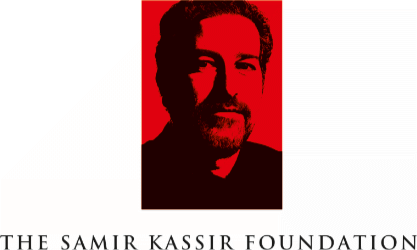Legal Background
Laws regulating the media do exist in Lebanon; but they are often considered outdated, not adapted to modern realities, and therefore easily circumvented. Many of Lebanon’s lawmakers and media experts have been calling for a comprehensive update of media laws to protect freedom of the press, increase its independence and the transparency of the sector.
The Lebanese law does not contain a unified piece of legislation that provides for a general organization of the media and their activities. Instead, the Lebanese media is principally governed by international texts and principles, the Lebanese Penal Code, and laws specific to the press and the audiovisual broadcast sectors.
Media cannot exist without prior licensing from official authorities – whether by the Council of Ministers, the Ministry of Information, or the Directorate General of General Security. The only exception, which has made Lebanon a haven for publishers in the Arab world, is the printing of books. To date, both cable distribution and the internet remain highly unregulated.
Lebanon has two authorities regulating media and telecommunications:
- The National Media Council (NMC); and
- The Telecommunications Regulatory Authority (TRA), effectively suspended since 2015.
Regulating ownership
The cost of a license is the first obstacle to owning a media outlet. The only financial requirement from license applicants for a political print publication is a minimum start-up capital of 500,000 LBP (approximately USD 333), in addition to a financial guarantee to cover various indemnities and retirement funds to be determined by the Ministry of Information after consultation with the Press Order (Article 33). In the case of starting a new political periodical, however, the major financial hurdle affecting freedom of expression is the need to acquire two existing titles – these sell for up to USD 300,000 for a daily – in order to open up a new periodical; or the acquisition of an existing title and re-launch the newspaper under its established name. In the case of private terrestrial broadcasting, financial requirements include not only the cost of the license itself (USD 167,000 for television), but there is also an annual “rent” fee (USD 67,000). Although many licensees consider the annual fee to be a heavy burden that affects the survival of mostly small stations in a limited market like Lebanon, the cost of the license established during the 1996 licensing process is more problematic.
Due to the license attribution system, the condition to be granted a new license is for publishers to hold two licenses for a political periodical, provided that they stop publishing the two titles already licensed.
One of the main negative consequences of this condition is that it artificially inflates the value of existing licenses and has made some license holders reluctant to stop publishing dailies or periodicals for which they have a license. Indeed, some licensed newspapers are issued once or twice a year for the sole purpose of keeping the license active. While for others, there has been no consequences on license holders for not issuing any publication.
Regulating media content
Media content and other related matters are referred to in certain provisions of the Lebanese Penal Code, dealing with the offenses of libel, slander and defamation, and other offenses committed by means of publication. The Military Justice Code, issued by virtue of Law No. 24 of 1968, also contains provisions punishing false allegations and defamation against Lebanese and foreign armies as well as Lebanese and foreign flags, heads of states and ministers, etc.
There are also several pieces of legislation and regulations that organize cinema and theater, foreign books and other printed publications (such as leaflets and brochures). Some of these regulations establish prior censorship by the General Security on all the aforementioned.
In addition, the Parliamentary Election Law No. 44 of 2017 introduces regulation for electoral campaigning and paid media advertising.
Lebanon does not have any specific legislation related to social media. It is the general Penal Code as well as the 1962 Press Law that have been used to summon, arrest and prosecute several bloggers and users of social media by the Lebanese authorities on the grounds of violation of public order, libel, slander, and defamation. At the time of the study, a draft media law addressing all media sectors, including the online sphere, was being debated at the Parliament


